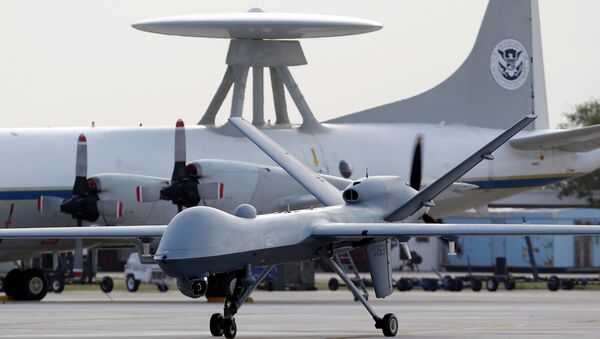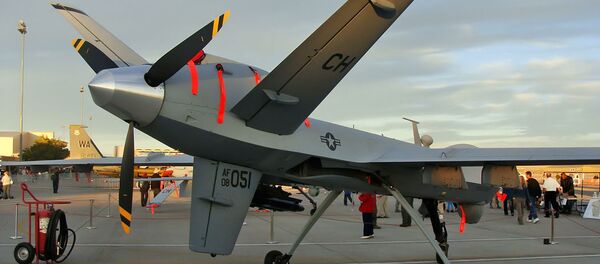Lt. Col. Jason, commander of the 46th Expeditionary Reconnaissance and Attack Squadron (ERAS) told Military.com, "It's in the process, Air Force-wide. We're just going to continue to see less MQ-1 and more MQ-9."
Jason said that the launch and recovery process will remain essentially unchanged, even if the shift to the MQ-9 will require a little adjustment. He said they’re “one of several MQ-1 missions" in the region, but didn’t specify the number of unmanned aerial vehicles (UAVS) in service.
The Reaper can carry more munitions than the Predator, and also features high definition sensors and increased speed, allowing it to operate in a broader range of missions than the MQ-1.
Officials at Creech Air Base in Nevada stressed that their site controls air strike operations and that the 46th only facilitates launch and recovery.
Though a mission of all MQ-9s would increase efficiency for downrange crews, some officials, including Jason himself, worry that they may lose the flexibility that comes from having two platforms on hand.
Jason explains that using both types of drone broadens the "options that we have."
"If we were only an MQ-9 base, and the weather was really bad, and there's MQ-1s that are airborne, we may not be able to receive them if we didn't have qualified MQ-1 crews" at the base, he said. Having personnel capable of operating both gives the force flexibility, he said.
According to Air Combat Command officials, the MQ-9 and the Predator currently represent the service’s largest major weapons systems, and it was announced in March that the command had more positions open for MQ-9s and MQ-1 pilots than any other piloting job.
The two General Atomics-made crafts are usually used together for reconnaissance, intelligence and surveillance missions, particularly against Daesh.
US Air Forces Central Command Commander's Action Group chief Lt. Col. Eric Winterbottom said that sometimes multiple UAVs are "combined in a formation to go out and execute, because we know they're more efficient in using their sensors when they're tasked together, having airmen leading airmen."
He explained to Military.com in October, "If you have two aircraft working the same target, then one can guide the weapon in, while the other one takes a larger, zoomed out view to look for things you don't want the missile to hit."




